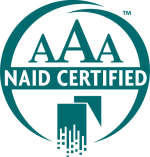
With the rising risk of identity theft and privacy breaches, it becomes increasingly important to understand the various types of documents that often contain sensitive information. By delving deeper into the subject, we explore the 11 common document types that frequently hold private details, shedding light on their significance and emphasizing the need to manage them with the utmost care and attention. This knowledge will empower you to take proactive steps to safeguard your personal information and preserve your privacy.
Personal Identification Documents
These documents serve as proof of identity and contain sensitive information such as full name, date of birth, signature, and sometimes even photographs. Some examples include government-issued identification cards (driver’s license, passport), social security cards, birth certificates, and immigration documents. Losing these documents or having them fall into the wrong hands can lead to identity theft and other forms of fraud.
Financial Documents
Financial documents are undoubtedly among the most critical types of personal records. They encompass many paperwork such as bank statements, credit card bills, investment records, tax returns, and pay stubs. These documents contain sensitive information like your account numbers, social security numbers, and income details. The danger lies in the fact that identity thieves can exploit such data if not disposed of properly. Shredding these documents becomes essential as it renders the information unreadable, thereby providing an effective deterrent against any fraudulent activities. It is a simple yet powerful means of safeguarding your financial privacy and security.
Medical Records
Medical records contain personal details such as your health history, insurance information, and social security number. They are a potential goldmine for identity thieves as they can use this data to fraudulently obtain medical services or prescription drugs in your name, resulting in financial losses and damage to your medical history. Storing these documents in a secure location, only sharing them with authorized professionals, and shredding outdated records can help protect your medical privacy.
Employment Records
Employment records hold sensitive information such as social security number, salary details, and employment history. If this information falls into the wrong hands, it can lead to identity theft and financial fraud.
Legal Documents
Legal documents encompass various paperwork such as contracts, deeds, wills, and court-related documents. These contain personal information such as your full name, date of birth, and social security number. Identity thieves can use this data to impersonate you or commit financial fraud. Keeping these documents secure and only sharing them when necessary is crucial, especially during legal proceedings. Proper disposal of outdated legal documents through shredding can prevent any potential misuse.
Insurance Documents
Insurance documents include policies, claims, and statements containing sensitive information like your name, address, social security number, and medical conditions. Identity thieves can use these records to commit insurance fraud or access your personal information. Keep these documents safe and dispose of them securely when no longer needed.
Educational Records
Educational records, such as transcripts, diplomas, and academic certificates, contain personal information like your name, date of birth, and social security number. Identity thieves can use these documents to apply for loans or credit cards in your name. It is essential to secure these records and only provide them when required.
Tax Documents
Tax-related documents hold sensitive information such as your social security number, income details, and tax deductions. Identity thieves can use this data to file fraudulent tax returns or obtain personal loans. It is crucial to keep these documents safe and dispose of them securely after the required retention period.
Travel Documents
Travel documents like boarding passes, passports, and visas contain personal information that can be used by identity thieves to steal your identity or commit financial fraud while you are away.
Utility Bills
Even seemingly innocuous utility bills hold sensitive information like your full name, address, and account number that can be used by identity thieves to open new accounts or access your existing ones. Shredding outdated utility bills is an effective way to protect your personal information.
Personal Correspondence
Personal correspondence, such as letters and cards, can reveal personal details about you that identity thieves can use to impersonate you or obtain sensitive information. Be sure to dispose of these documents securely when no longer needed.
By understanding the types of documents that contain sensitive information and taking the necessary precautions to secure and properly dispose of them, we can minimize the risk of identity theft and protect our privacy. With Southland Shredding, you can safely and efficiently dispose of your sensitive documents with their secure shredding services. Take the necessary steps to safeguard your personal information and ensure your privacy is preserved. Contact Southland Shredding today to learn how to stay vigilant and take proactive measures to maintain your data security.




